The EBU offers its Members a wide range of services covering our three strategic pillars: Strategy and Transformation, Regulation and Advocacy, and Content and Distribution. Browse our services pages to learn more.
Topic pages bring together on a single page all EBU events, groups, resources and contacts linked to a specific topic. If you like them, make sure to bookmark them.
All TopicsThe knowledge produced by the EBU helps media professionals make crucial decisions and keep up-to-date with industry trends. Explore our various formats: video talks, guides, research, case studies and technical publications.
Find everything you ever wanted to know about the EBU. Not only do our About pages help you understand our history and our purpose, but also offer easy access to our job openings, contact points, and much more.
About the EBUEnglish and French are available from the menu. To access other languages, click on the translation icon on the bottom right of your screen. This innovation is part of our effort to make EBU content as accessible as possible across the Membership.
The EBU’s Legal and Policy team works to secure the right regulatory framework for public service media at a national, EU and international level. We also provide expert legal advice to Members on day-to-day matters such as governance and media law, intellectual property, commercial contracts, and more
For the latest policy news and views, follow @EBU_Policy
See our highlights from the past year and discover how we are addressing challenges and championing public service media across Europe.
Read moreFreedom of expression, protection of journalists, political advertising, SLAPP
Find out more
A thriving public service media (PSM) upholds the freedom of expression and the right to information, while empowering journalists to work to the highest standards. It enables people to seek and receive information, and promotes the values of democracy, diversity, and social cohesion.
Securing Media Independence
One of the main challenges of public service media is to secure the right level of independence from those holding economic and political power, while ensuring appropriate funding. The organization of PSM and the definition of the public service remit is a question for individual Member States. EU initiatives on media independence and enhancing transparency of media ownership should not impinge on Member States’ competence to act but should complement relevant national rules.
An Independent And Sustainable Governance Framework
PSM’s independence from political and commercial interests hinges on sustainable and predictable funding combined with an appropriate governance framework. Although there is no “one size fits all” approach to how PSM is set up at the national level, the governance framework should follow the principles of independence, accountability, and sustainability.
Protection Of Journalism
Journalists and media professionals are increasingly exposed to hostility, harassment, and violence offline and online. The editorial independence of media organizations must be protected. EU legal initiatives on journalist protection must be consistent with the standards of the Council of Europe. See our work on journalist safety.
Want to know where we stand? Check out our latest updates on Media Freedom and Pluralism!


Audiovisual Media Services Directive (AVMSD), prominence, content integrity, and greater fairness
Find out more
The Audiovisual Media Services Directive (AVMSD) is the legal framework that establishes principles for a thriving media landscape in Europe.
Ensure Prominence Of General Interest Content Everywhere
The AVMSD allows national regulators to take measures ensuring the prominence of general interest content and services. TV manufacturers, aggregators of audiovisual media services as well as online platforms have a clear incentive to draw audiences to content that furthers their commercial interests. This risks marginalizing content and services of general interest. National policymakers must establish modern rules to make public service media (PSM) content and services prominent and ensuring their accessibility for everyone.
Protection Of Content Integrity
The AVMSD states that programmes and audiovisual media services should not be altered, interrupted, or overlaid by third-parties for commercial purposes, without the media service provider’s explicit consent. We encourage national legislators to adopt comprehensive and effective rules to protect content integrity.
Increase Responsibility Of Online Providers And Strengthen Fairness
The AVMSD introduces new responsibilities for video-sharing platform service providers, for instance in terms of basic advertising rules. We believe that these new rules are an important first step to increase the responsibility of these providers and to strengthen fairness in the European audiovisual media sector if effectively and consistently implemented. We advocate, however, for further regulation of online platforms as they impact the way audiovisual content and services can be found online.
Want to know where we stand? Check out our latest updates on Media Content Regulation!


Brand attribution, access to data, self-preferencing, algorithmic transparency, competition, platform-to-business Regulation
Find out more
To reach all segments of society, public service media (PSM) increasingly rely on online platforms. This comes with specific challenges.
Content Moderation
Based on their own content policies, online platforms have taken down or restricted the visibility of PSM content. Thus, they deprive users of content that is already regulated and trusted. The EU should establish robust procedural guarantees for PSM that ensure effective remedies against unjustified or flawed content moderation decisions.
Brand Attribution
Online platforms must ensure that the identity of media organizations is clearly visible alongside their content, so that users can make informed decisions about the content they consume.
Algorithmic Transparency
PSM need transparency about the algorithmic decision-making processes and content recommendations of online platforms to understand how their content and services are ranked.
Prominence
To allow citizens easy access to PSM content and services online, EU policymakers should ensure that platforms present content and services of general interest prominently. Learn more about our work on prominence.
Access To Data
Data is a crucial resource in the digital age. PSM needs guaranteed access to meaningful data about their own content and services that appear on platforms.
Self-Preferencing
The EU should fight against all forms of self-preferencing – where platforms treat their own services more favourably than those of their competitors.
With the Digital Services Act, the Digital Markets Act and the Platform to Business Regulation, EU policymakers have taken measures to react to the increasing influence of online platforms. This effort must be continued so that PSM can operate freely and remain relevant to their audiences online.
Want to know where we stand? Check out our latest updates on Online Platforms!




The General Data Protection Regulation (GDPR), ePrivacy Regulation (ePR), Artificial Intelligence (AI), Data Governance Act, Data Act
Find out more
The collection and use of data have become essential to better understand audiences’ expectations and needs, and thus to improve the overall quality and diversity of media offerings. Embracing new data opportunities while protecting individuals’ personal data is one of the most important challenges media companies are facing today.
As part of their public service remit, public service media (PSM) has a particular duty to ensure that data is collected, stored and handled in the most responsible way and in compliance with applicable EU and national laws.
GDPR
PSM supports consistent and effective enforcement of the GDPR to ensure individuals’ privacy and legal certainty for organisations, especially when processing personal data outside the EEA to third countries which do not benefit from an EU adequacy decision. In addition to other key GDPR compliance issues such as data security, controllers and processors’ obligations, data subjects‘ rights, the EBU is also involved in protecting the delicate balance between the right to the protection of personal data and the right to freedom of expression and information, to avoid creating a chilling effect on journalistic activities.
ePrivacy
The ePrivacy Regulation proposal is meant to harmonise notably consent requirements and rules for the tracking of online activity through the use of cookies. The EBU supports the proposed cookies’ consent exceptions as well as a sound and workable audience measurement system.
Artificial Intelligence (AI)
Public Service Media develop and use AI tools to support journalism, foster diversity, and optimise workflows. By their nature and mission, PSM are committed to applying the highest ethical and technological standards to protect and inform citizens.
Want to know where we stand? Check out our latest updates on Data and Privacy!



5G networks, wireless production, 5G distribution, vertical, 5G broadcasting, net neutrality, specialized services
Find out more
5G
The EBU and public service media (PSM) are pioneering the use of 5G for content production and distribution via technical trials. They have worked on its standardization and initiated the coordination of media and ICT stakeholders with 5G MAG, to foster a media vertical.
The EBU calls for appropriate regulatory guidelines and the right technology choices. The broadcasting industry should be able to own and operate its own 5G networks for specific purposes, e.g. for wireless production infrastructure for live event coverage.
It is also key that large-scale content distribution over 5G is technically and economically sustainable, to keep PSM affordable and accessible. 5G Broadcasting has thus been put forward to ensure PSM content is present on all mobile devices also via broadcasting, to enable free access. Learn more about 5G.
Open Internet
Audiences should have unfettered, non-discriminatory, and transparent access to online content of public interest. Measures strengthening transparency need to be combined with a clear policy regarding internet traffic management that ensures that equivalent types of traffic are treated equally.
Regulators must prevent new forms of traffic discrimination where only content providers with sufficient resources can negotiate ‘preferential’ deals, distorting competition, hampering innovation, and reducing user choice.
Net neutrality must be the norm with specialized services as the exception to avoid that finite network capacity would be dominated by specialized services, impairing access to the Open Internet.
Want to know where we stand? Check out our latest updates on 5G and Open Internet!



PSM Funding, Sustainable funding, competition policy, innovation, Amsterdam protocol
Find out more
The media landscape is changing rapidly, shifting away from traditional broadcasting and embracing the ‘age of platforms’. Competition and State-aid rules need to take into account the full impact of global media players on the European media landscape and allow public service media (PSM) to innovate and develop new services and content to fulfil their universality obligations and stay relevant.
PSM Funding Schemes
These funding schemes should allow PSM organizations to fulfill their public interest mission. Governments should provide adequate financial support to PSM so that they benefit all citizens and fulfill their role to promote democracy, social cohesion and cultural values.
Sufficient, Stable And Sustainable Funding
A lack of stable and sustainable funding impacts the quality of programming and news in particular, leaving our Members vulnerable to commercial and political influence, and reducing their capacity to invest in new offerings, technologies and talented people.
Give Public Service Media Freedom To Innovate And Stay Relevant
Competition law and State aid rules must allow PSM to innovate and work together to compete fairly with non-European competitors in the provision of new media and digital services.
Support The European Dual Broadcasting System
This model which has been recognized in many international texts and court judgments ensures that public and private media compete effectively to provide high-quality media content.
Want to know where we stand? Check out our latest updates on Competition and Funding!


Intellectual property (IP), Contractual freedom and territoriality, International and EU regulatory framework
Find out more
Public service media (PSM) invests €18 billion a year in original European content. These programmes exist thanks to a variety of contributors entitled to remuneration for the use and licensing of their work.
High-Quality Content
Since PSM are both rightsholders and rights users, it is crucial that the EU copyright framework enables them to fulfil their national obligation: bring high-quality content and service to their citizens. The EBU provides legal advice and support to PSM in the implementation of EU law and acts as the contact point with the EU.
Contractual Flexibility
The EBU advocates for fostering an environment facilitating broad distribution and access to content, while protecting artistic creators. Maintaining contractual flexibility allows rightsholders and rights users to negotiate how, when, and where licensed content is offered, to best match consumer preferences. This flexibility depends on the possibility to exploit audiovisual works on a territorial and exclusive basis. Territoriality emphasises the funding of European works. Removing it would limit audience choice and favour the largest players.
WIPO
The current level of protection is insufficient to effectively combat today’s piracy of audiovisual content. PSM actively supports WIPO’s work on a Broadcasting Organizations Treaty and strongly encourages WIPO Member States to adopt a robust international instrument in the near future.
Want to know where we stand? Check out our latest updates on Copyright and Neighbouring Rights!


Frequencies, Digital Terrestrial Television (DTT), Lower UHF band, 470-694 MHz, sub-700MHz band, UHF, WRC, RSPG, Digital Dividend, PMSE
Find out more
Spectrum is the range of frequencies used to transmit data wirelessly. It is divided into different bands. The Lower UHF band (470 to 694 MHz) is the band used by public service media (PSM) to deliver free-to-air Digital Terrestrial Television (DTT) to audiences. It has been shared with wireless production systems (PMSE) for decades.
A Scarce Resource
Spectrum has become a scarcer resource due to the increasing development of wireless technologies. In the recent past, broadcasters have invested to free up a significant portion of the spectrum they used, while also increasing choice and quality for TV viewers. This portion of spectrum has now been allocated to mobile-broadband services (Digital Dividends). Further diversion of spectrum resources away from broadcasting will undermine universal access to PSM, as, in practice, it would mean DTT has to stop. On the production side, PMSE would have to find another band for the wireless microphones, talk-back and in-ear systems used in political, religious, sport, cultural and local events every day.
Protect Broadcasting
The EBU relentlessly aims to ensure there is sufficient spectrum for DTT and to sustain a vibrant European audiovisual landscape. In the context of the ITU World Radiocommunication Conference (WRC-23), and especially regarding its Agenda Item 1.5, the EBU urges negotiators to protect the current use of spectrum by DTT and PMSE in the Lower UHF band. This reflects the very well-balanced compromises found at EU level with the UHF Decision.
Want to know where we stand? Check out our latest updates on Spectrum!



Our Legal and Policy team defines our policy positions together with our Members, and in consultation with the Legal and Policy Assembly, Legal and Policy Committee and our expert groups. Also find our archive of Legal and Policy Assembly documents, dating back to 1999.

Media freedom and the very existence of public service media is threatened in Europe. This is why the EBU takes this opportunity to highlight how EU politicians can help to turn the tide. In this publication, you can find the EBU’s priorities for the EU elections and new EU mandate. They are:
Now is the time for policymakers to take a stand in support of the diverse and pluralistic media sector in Europe. The EU needs policies that support people’s ability to stay informed with reliable news and enjoy quality media. Independent public service media are ready and willing to be a key partner for the solution.


In Europe, we are currently witnessing a scramble for artificial intelligence (AI) regulation, both nationally and internationally. The European Union (EU) is finalising a proposal to establish common rules and obligations for providers and deployers of AI-based systems in the EU internal market. In parallel, the Council of Europe (CoE), a different inter-governmental organisation made up of 46 member states, including the 27 EU member states, is negotiating an international treaty – the so-called “Framework Convention” – on the development, design and application of AI systems based on the Council of Europe’s standards on human rights, democracy and the rule of law. The Framework Convention is expected to become the leading global normative instrument for AI, as states such as the United States, Canada, Israel and Japan have committed to ratifying it.
At present, the main challenge of AI regulation is to foster innovation and encourage the use of AI while protecting fundamental rights. This is why the EU and the Council of Europe are proposing a "risk-based" approach,...
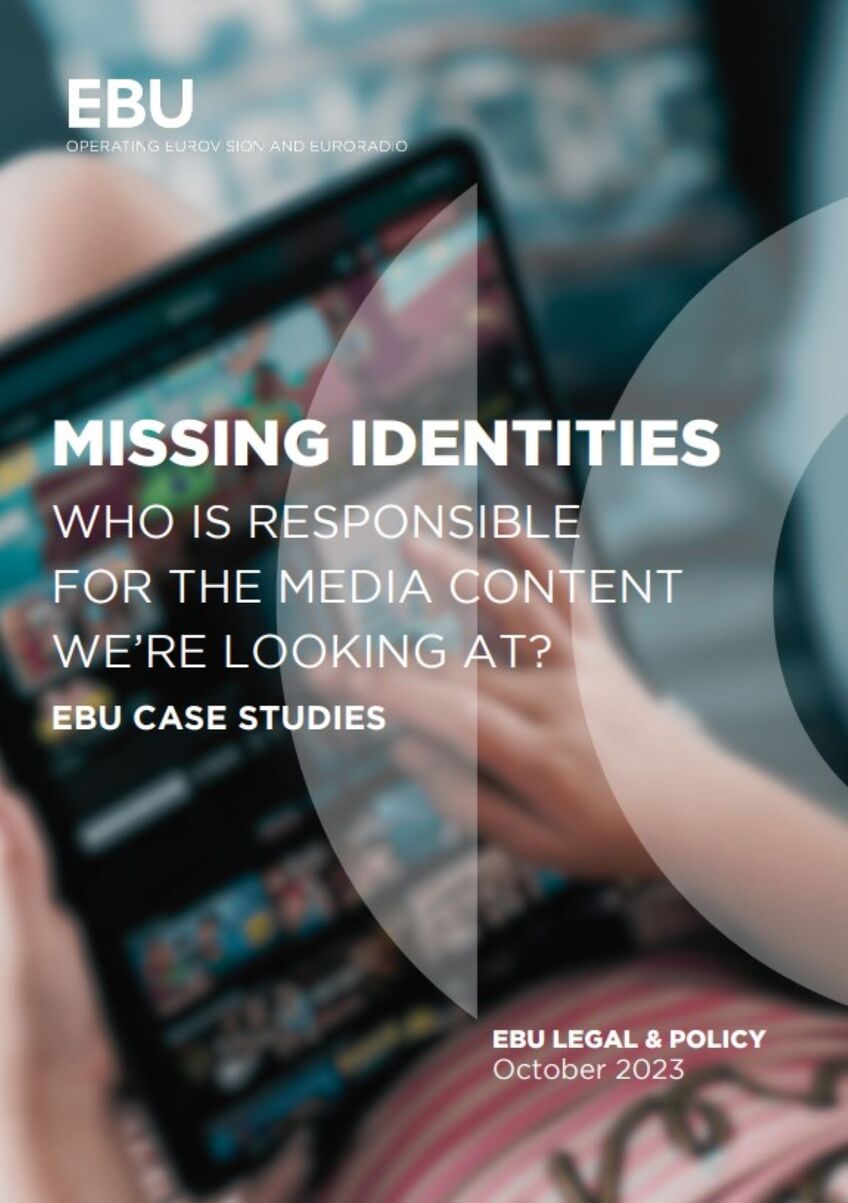
Online access to editorial content has evolved, with audiences now relying on third-party platforms and devices. However, the presentation of media content is largely in the hands of intermediaries, who often neglect to attribute content to its source, sometimes intentionally obscuring media identities.
This lack of attribution makes it challenging for audiences to identify content origins, impacting their ability to discern between credible and sensationalized sources. This distortion of perception can influence opinions and hinder active societal participation, ultimately affecting media freedom and pluralism.
Download our publication to find out more.
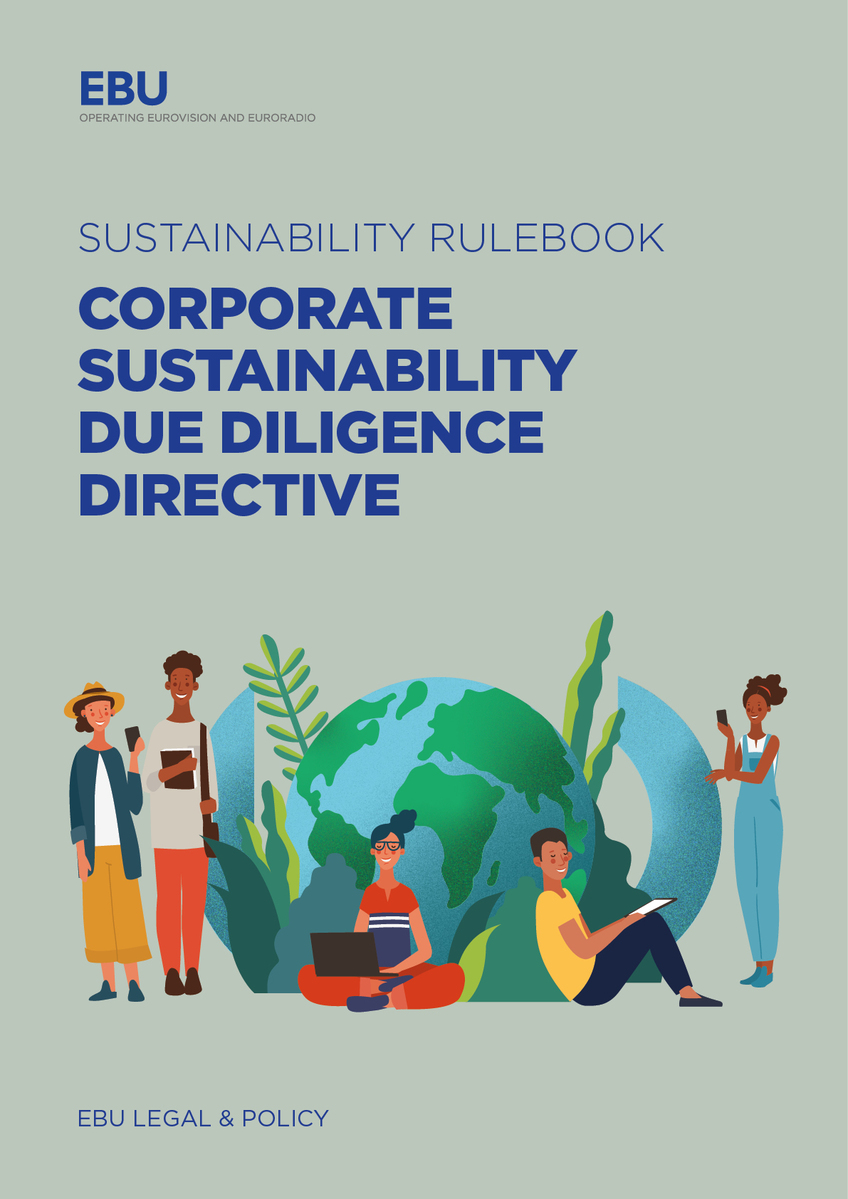
If adopted, the European Commission’s proposal for a Corporate Sustainability Due Diligence Directive (CSDDD) would require companies to establish due diligence procedures to address adverse impacts of their actions on human rights and the environment, including along their value chains worldwide. The aim is to foster sustainable and responsible corporate behaviour and to introduce sustainability considerations in companies’ operations and corporate governance.
The CSDDD is part of the European Green Deal – a set of policy initiatives by the European Commission with the overarching aim of making the European Union's climate, energy, transport and taxation policies fit for reducing net greenhouse gas emissions by at least 55% by 2030, compared to 1990 levels, and climate-neutral by 2050. Together with existing...
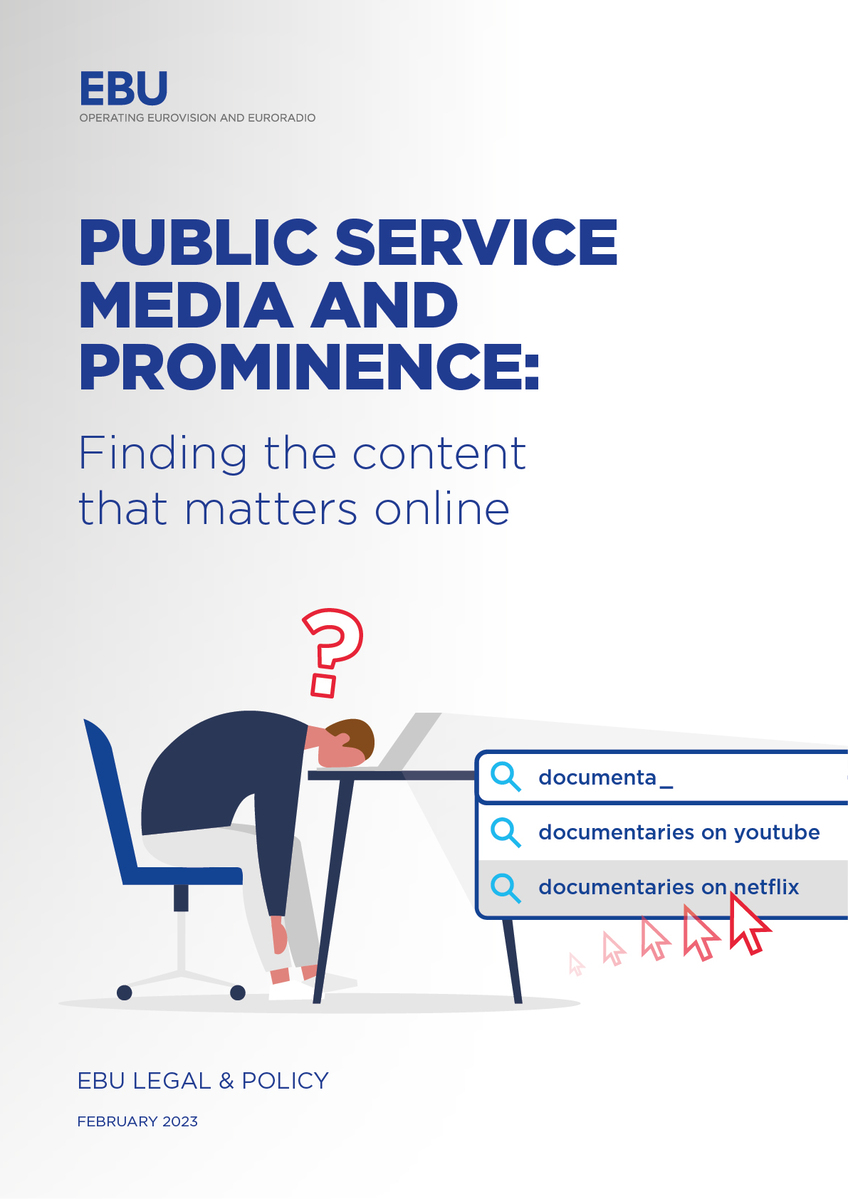
In today's online world, big tech platforms unilaterally determine who sees what and when – based on their own recommender algorithims and community standards. Device manufacturers also act as powerful gatekeepers between media providers and their audiences. Whether on Smart TVs or remote controls, commercial objectives determine which media services and content is displayed or easily found.
Public service media are an important source of varied quality content, reliable information, and diverse opinions. But they, like many other European broadcasters, lack the bargaining power to ensure that their services and content are easy to find and prominently placed when offered on online platforms or connected devices.
Find out more about all aspects of prominece by downloading our publication.
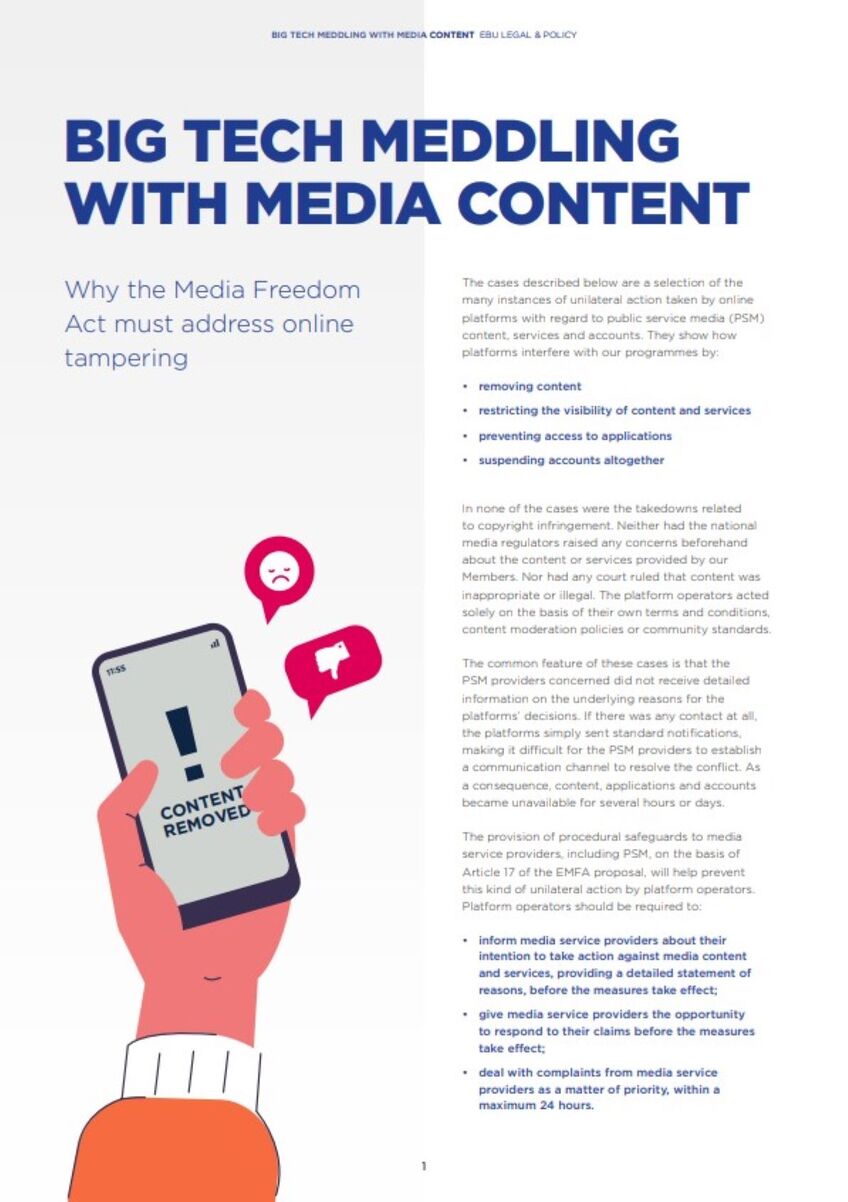
Nowadays, access to audiovisual and audio media content is increasingly mediated by digital devices and user interfaces.
In the current competitive media landscape, apps, and services risk becoming irrelevant to audiences if not easily accessible. This poses a struggle for prominence, posing a threat to media service providers and citizens' access to diverse media, trustworthy information, and local content.
Download our publication to find out more about specific examples influencing PSM prominence and their findability by audiences.

Nowadays, access to audiovisual and audio media content is increasingly mediated by digital devices and user interfaces.
In the current competitive media landscape, apps, and services risk becoming irrelevant to audiences if not easily accessible. This poses a struggle for prominence, posing a threat to media service providers and citizens' access to diverse media, trustworthy information, and local content.
Download our publication to find out more about specific examples influencing PSM prominence and their findability by audiences.
This public version of our Digital Services Act (DSA) Handbook will help explain the new rules that the DSA has put in place and how public service media can work with third-party online platforms in the broadest sense, whether on the business, technical or legal side, and should provide answers to the most pressing questions they may have concerning the DSA.
Specifically, this publication offers a breakdown of all the DSA provisions that may affect public service media activities, and considers what could be done to further rebalance the relationship with third-party online platforms.
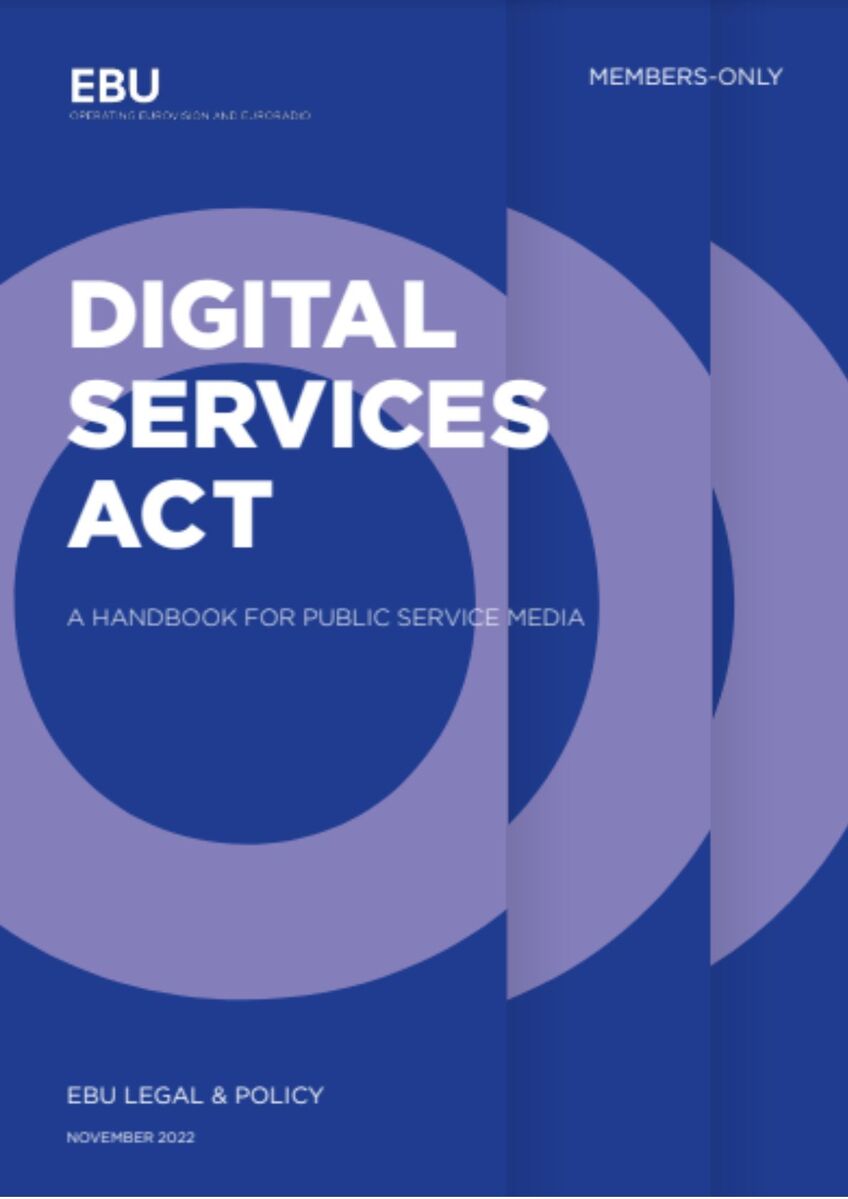
This Members only guide (see the public version here) will help public service media employees that work with third-party online platforms in the broadest sense, whether on the business, technical or legal side, and should provide answers to the most pressing questions they may have concerning the DSA.
Specifically, this publication offers public service media a breakdown of all the DSA provisions that may affect their activities, describes what these provisions mean for PSM specifically and addresses what could be done to further rebalance the relationship between PSM and third-party online platforms.
Non-Members are invited to contact the EBU Legal Secretariat for information on how to obtain a copy.
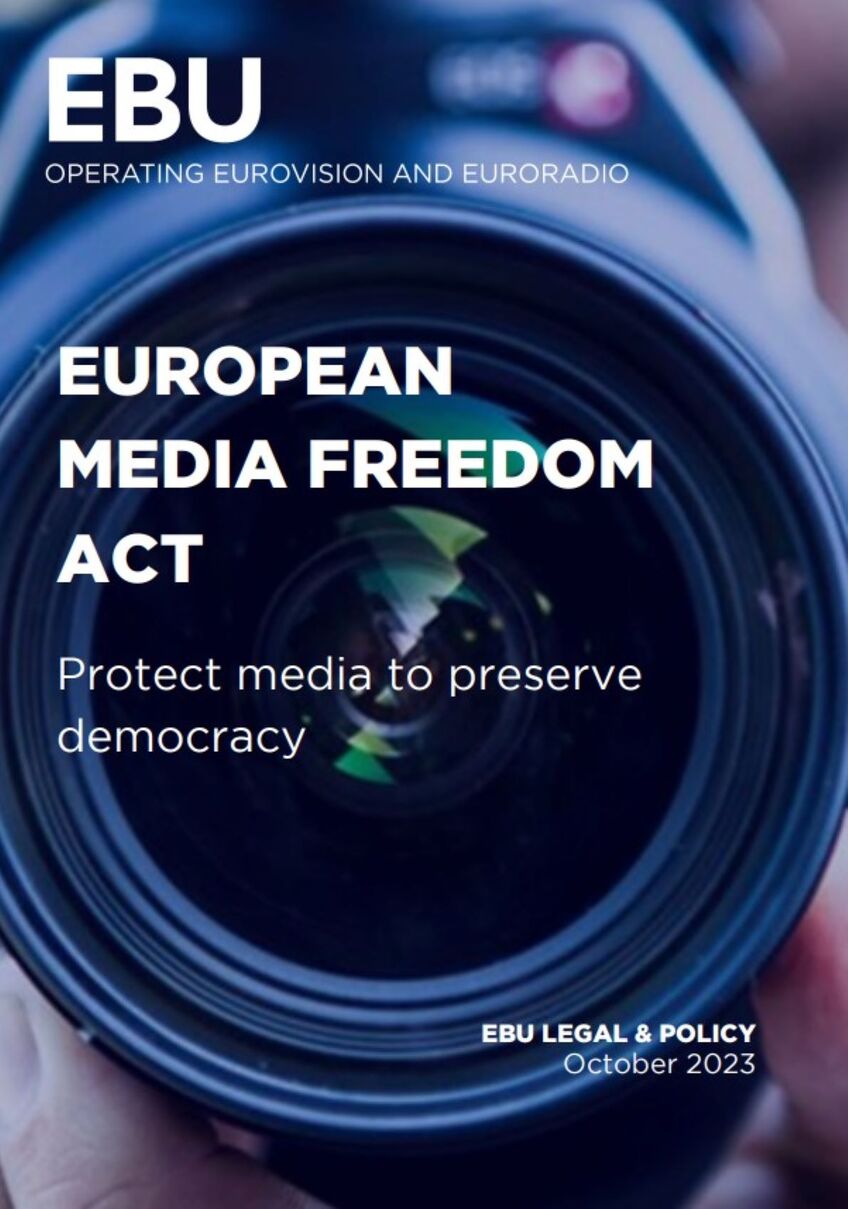
Media freedom and pluralism are core European values, and they need strong protection. Threats like government interference, attacks on journalist integrity, financial pressures, and online gatekeepers obstructing content access endanger these values.
We welcome the European Media Freedom Act (EMFA) for acknowledging the importance of media in democracy and supporting independent public service media. To ensure EMFA addresses media independence and online access, we call on European decision-makers to clarify public service media principles and enhance provisions for services of general interest and tech companies' influence.
Download our publication to learn more about how to strengthen EMFA's proposal.
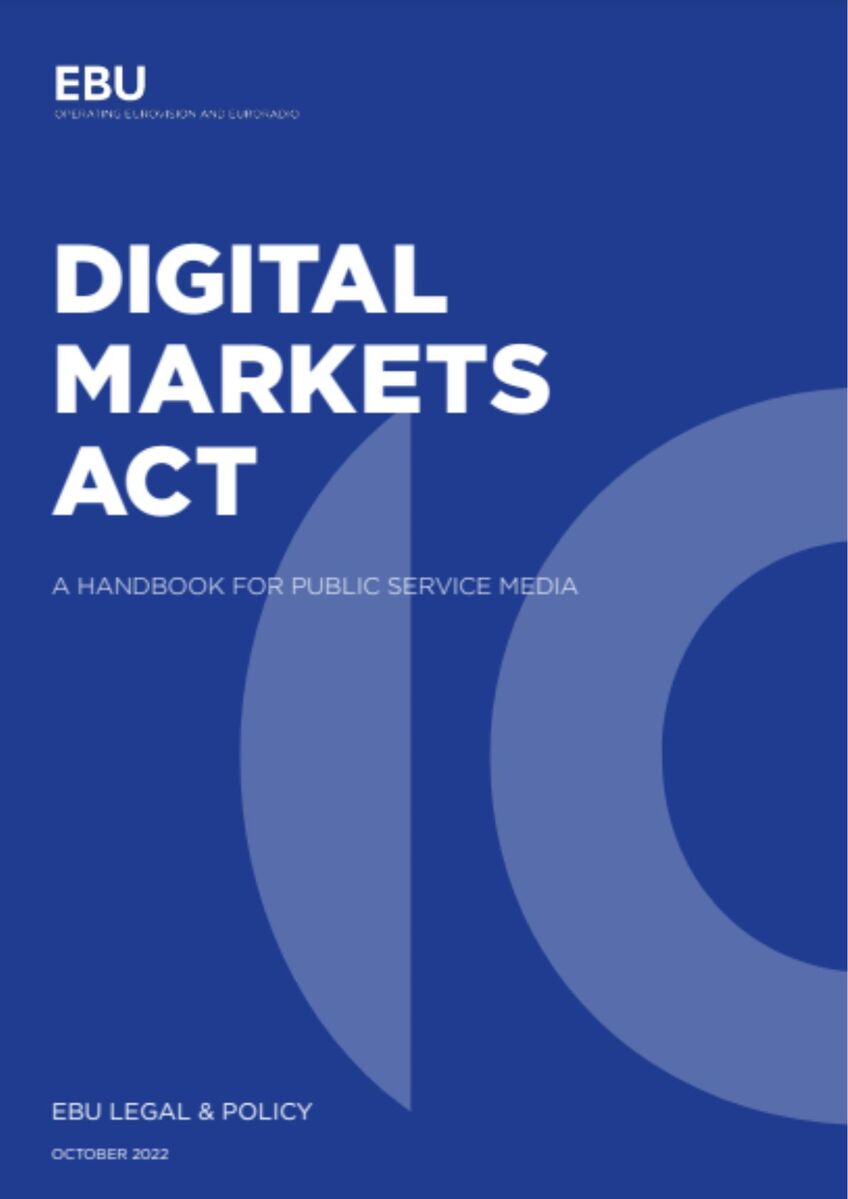
The Digital Markets Act Handbook is intended for EBU Members to clarify to public service media the “dos and don’ts” for digital gatekeepers included in this legislation.
The Handbook focuses on the most relevant provisions and implementation hurdles for PSM that were identified by the EBU during the legislative process.
Non-Members are invited to contact the EBU Legal Secretariat for information on how to obtain a copy.
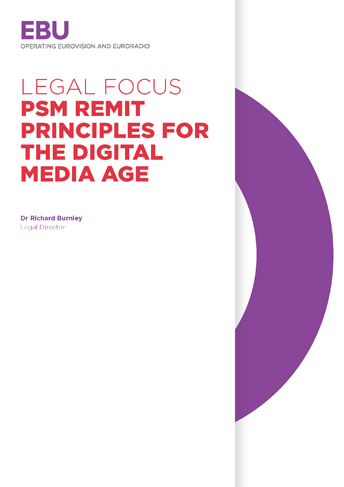
This Legal Focus publication deals with the critical question of public service media's role and the scope of its activities in the global digital media markets, identifying the following non-binding guidance Principles:
Find more publications from the Legal & Policy department here.
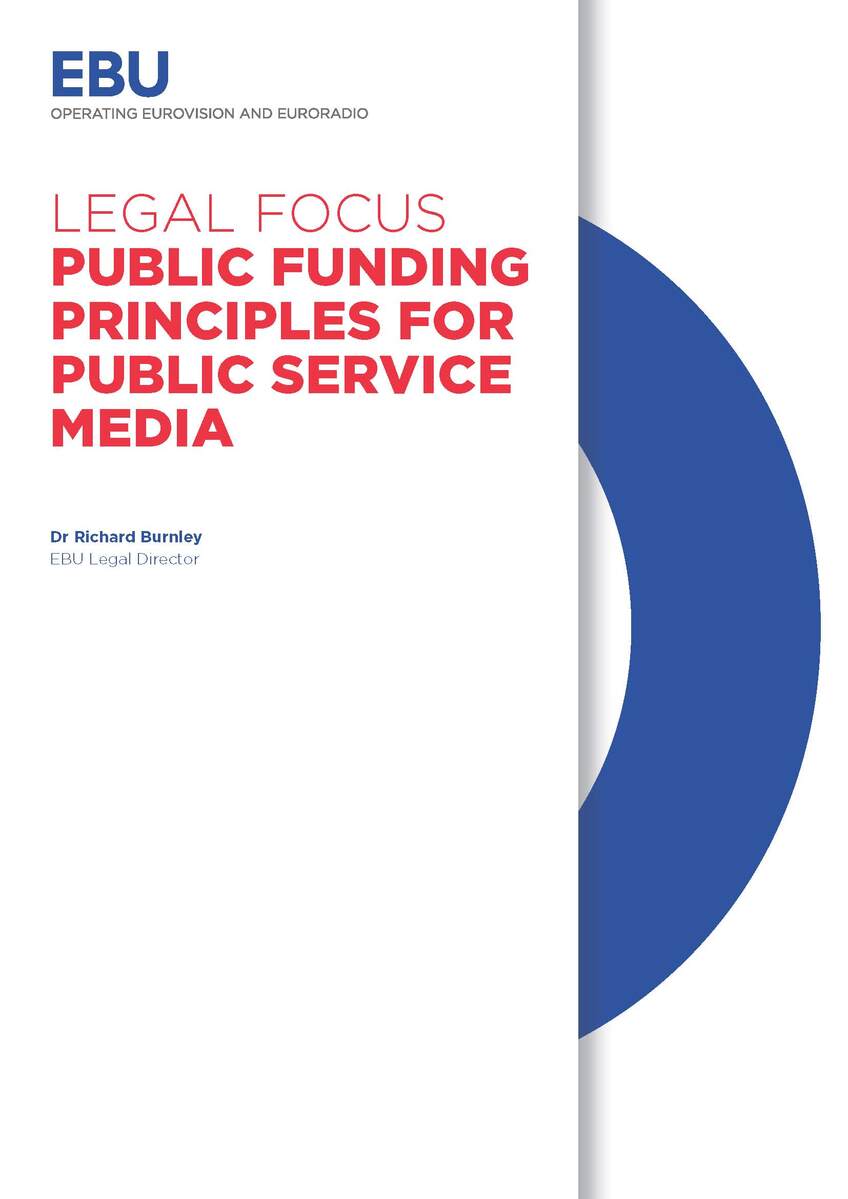
The EBU has published Public Funding Principles for Public Service Media (PSM). Coming at a critical time when PSM funding is under pressure in many different countries, these principles serve as a non-binding source of guidance and reference for PSM in the assessment and implementation of new and existing funding models. There are many different approaches to PSM funding used in Europe, taking into account the different legal, constitutional, economic and cultural structures of each country. However, it is possible to identify certain broader principles that should be relevant in any funding debate.
The EBU's Legal Focus on Public Funding Principles for PSM builds on the EBU Core Values of Public Service Media, declared by the General Assembly in 2012, in Strasbourg.
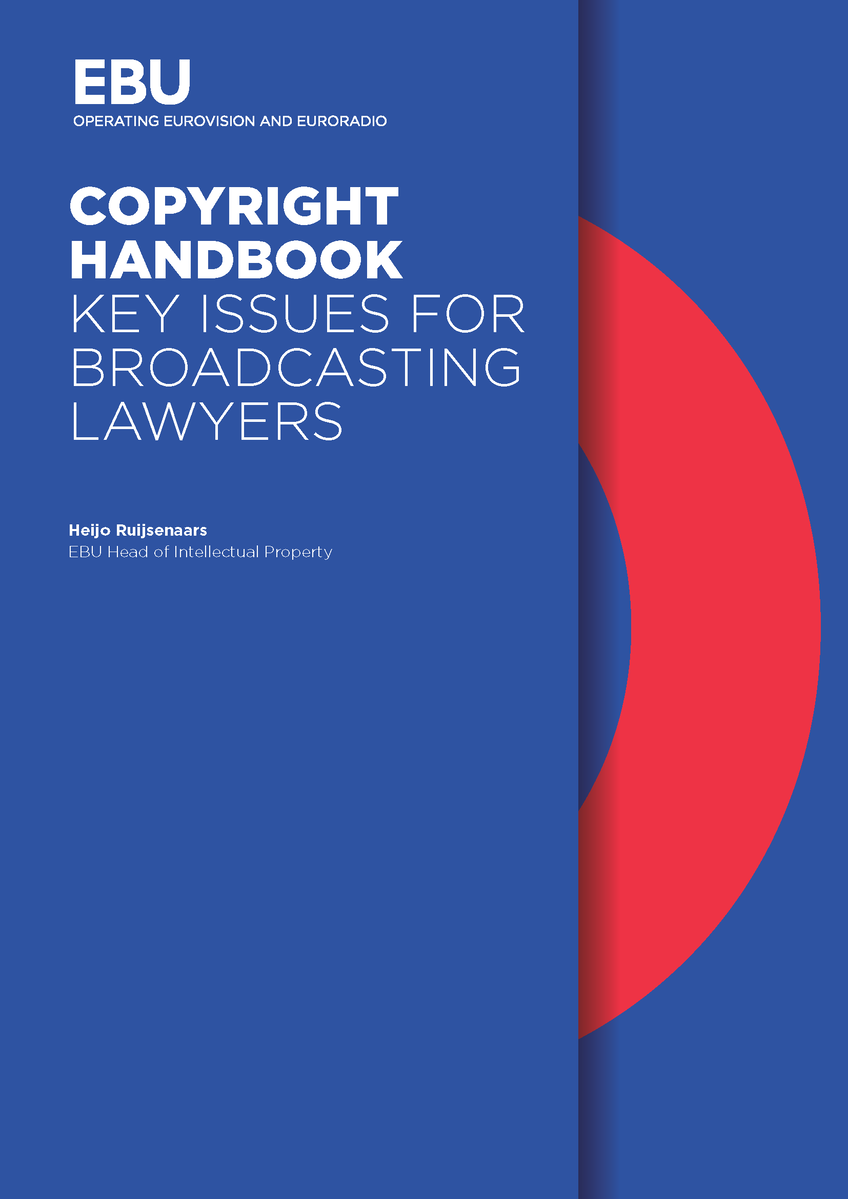
With its new Copyright Handbook, the EBU provides its Members with a reference tool addressing the main copyright issues faced by broadcasters. This Handbook is complementary to the EBU Copyright Guide, providing an overview of all relevant topics and illustrative case law as well as legal references to enhance the understanding of copyright matters in broadcasting.
Non-Members are invited to contact the EBU Legal Secretariat for information on how to obtain a copy.
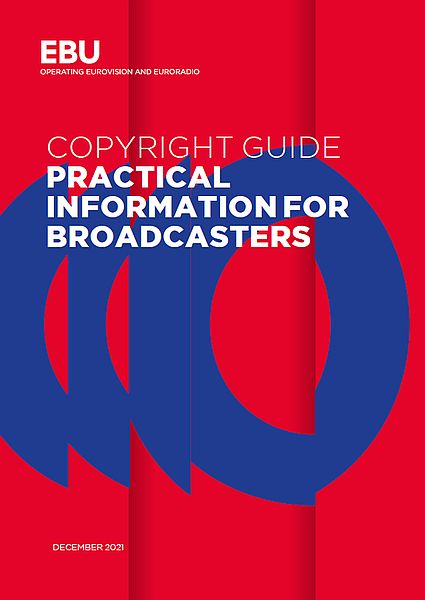
The EBU Legal Department has published a practical toolkit for editors and programme makers working for public service broadcasters, with the aim of increasing awareness of all the rights and obligations under copyright law to be taken into account when creating, selecting and using protected material.
Sign up for our Members only newsletters. The Legal and Policy Spotlight features periodic updates of the work that the department is doing. News2Know is a daily snapshot of the most relevant news for public service media. Also see our searchable News2Know database (Members only).
For the latest policy news and views, follow us on Twitter @EBU_Policy




Senior Executive Assistant & Membership Legal Secretary
+41 22 717 25 05